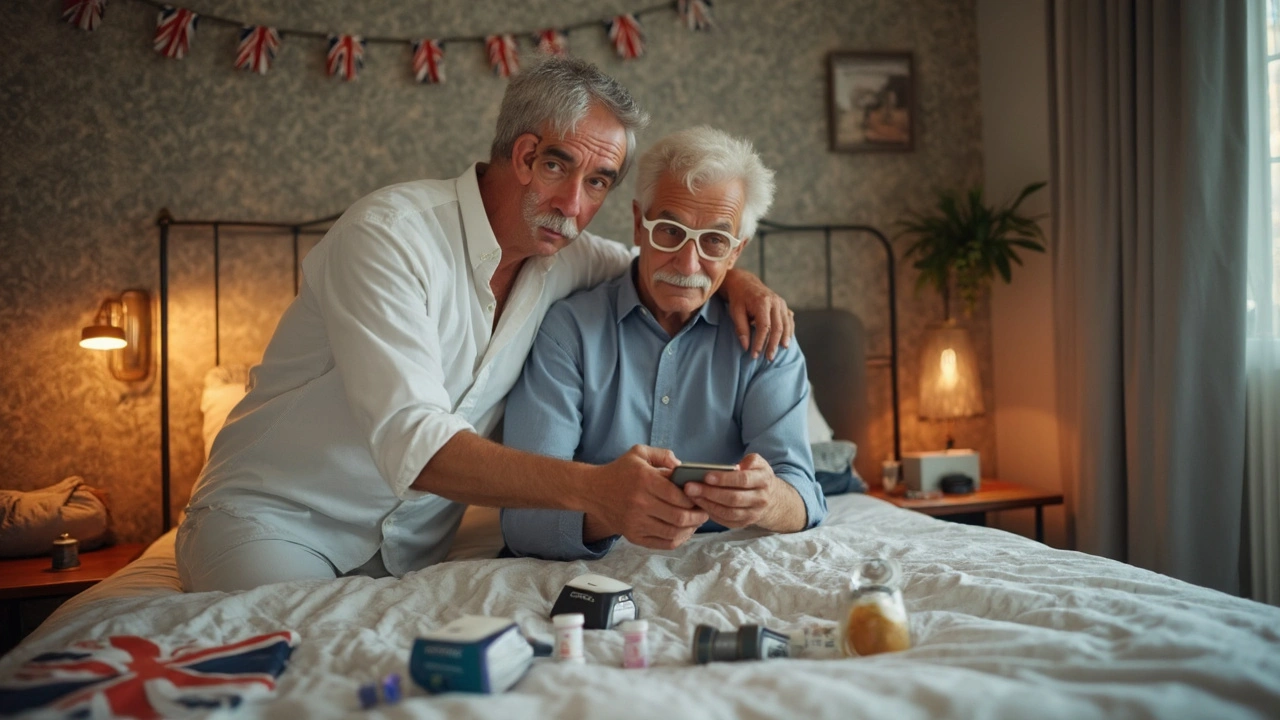Erectile dysfunction remedies: what actually helps
Struggling with erectile dysfunction (ED) is frustrating, but you don’t have to guess what to try first. Remedies range from simple lifestyle fixes to prescription meds and devices. Below I’ll walk through the most common, realistic options and what to watch for so you can make safer choices and talk to your doctor with confidence.
Medical treatments that work
PDE5 inhibitors are the go-to medicines for most men. Names you’ll hear: sildenafil (Viagra), tadalafil (Cialis), and vardenafil (Levitra). They boost blood flow to the penis and help get and keep an erection when you’re sexually aroused. Typical starting ranges you’ll see: sildenafil 25–100 mg as needed, tadalafil 5–20 mg (daily or as-needed options). Don’t mix these with nitrates (often used for chest pain) — that combo can dangerously lower blood pressure. If pills don’t work or aren’t right for you, other options include penile injections (alprostadil), urethral suppositories, and vacuum erection devices. A urologist can explain pros, cons, and side effects for each.
Penile implants are surgical but highly effective for men who haven’t found relief with other treatments. They’re permanent in effect and require a trained surgeon and honest discussion about expectations and risks.
Lifestyle changes, simple tools, and mental health
Before or alongside meds, try these practical steps. Exercise regularly — 30 minutes most days improves circulation and erectile function. Lose excess weight if you’re overweight; even modest weight loss can help. Quit smoking and cut back on heavy alcohol use; both harm erections. Improve sleep and manage stress — poor sleep and anxiety are common ED drivers.
Pelvic floor exercises (Kegels) help some men. Try contracting the pelvic muscles for 5–10 seconds, relax, repeat 10–15 times, three times a day. It sounds odd, but studies show benefits when combined with other measures.
Don’t forget mental health. Performance anxiety, depression, and relationship issues can cause or worsen ED. Counseling or sex therapy often makes a big difference, especially when combined with medical treatment.
Shopping for meds online? Be careful. Use licensed pharmacies and telehealth services that require a medical consultation and a valid prescription. Fake or improperly dosed medicines are common on shady sites. If you use telehealth, check that prescribers are licensed and read reviews.
See a doctor right away if ED starts suddenly, or if you have chest pain, fainting, or trouble breathing — those could signal heart problems. Also get checked if you have diabetes, high blood pressure, or prostate issues; treating those conditions can improve erections.
ED remedies are personal — what works for a friend might not work for you. Talk frankly with a clinician, try sensible lifestyle steps first, and pick medical options based on safety and how they fit your life.

Non-Prescription Viagra Alternatives: Best OTC Erectile Dysfunction Remedies That Work
Stiff competition in the bedroom doesn't always mean you need a prescription pad. This article uncovers the world of non-prescription Viagra alternatives, breaking down OTC supplements, handy devices, and lifestyle hacks that actually stand a chance for those struggling with erectile dysfunction. Explore science-backed ingredients, unexpected tricks, and the latest gadgets to keep your confidence up—without the need for a trip to the doctor. We’ll walk through common pitfalls, real product facts, clever workarounds, and surprising truths about what works—and what definitely doesn’t. Expect hands-on advice that you can actually use tonight.
